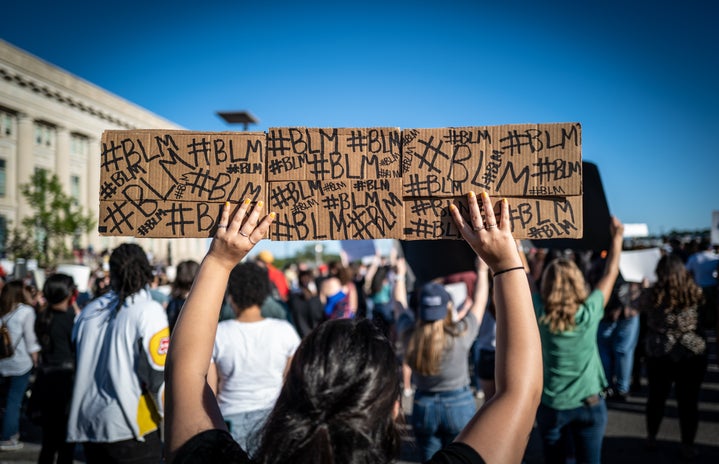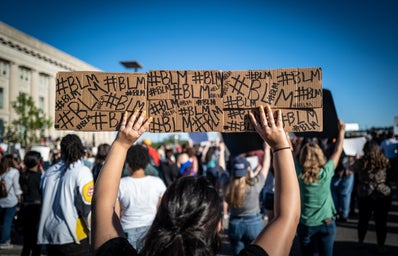This Black History Month follows a year of increased racial awareness, louder calls for racial justice, and the beginning of a racial reckoning. Many people began to understand race in a new way; to recognize how devastatingly unjust our country is. They started uncomfortable conversations and began to work and hold themselves accountable to doing better. To being better.
Black people have long had to bear the burdens of racism in our anti-Black society. They’ve had to deal with the consequences of being born in a Black body—consequences those who are not Black directly benefit from. They’ve been enslaved, beaten, jailed, killed, and denied every human right. Meanwhile, white people have been trying to learn—usually apprehensively—making that the burden of Black people, too.

It is not the responsibility of Black people to hold your hand through the ugly truths of our society. It is your responsibility to learn and follow the trail they’ve been blazing for a long, long time.
The good news is that Google is free, and Black people have already done the work to educate you. For example, the 1619 Project is an extensive project on the history of slavery in America. Additionally, you can read Ibram X. Kendi’s, BU’s director of the Center for Anti-racist Research, book How to be Anti-Racist, along with many other powerful books about racism in America. The point is, you shouldn’t be relying on the Black people in your life to educate you about what you should be actively trying to learn, and what is widely available for you to find.

Learning Black history is uncomfortable. So much of it is marred by the actions of white Americans’ lineage. Perhaps your own. Understanding your privilege in society and how directly it’s related to the suffering of so many others is more than uncomfortable. It should be. It is essential.
There is also joy in learning Black history, too. Black people have diverse cultures: rich, deep, and beautiful. They’ve shaped our society and culture in ways they are rarely given credit for, and too many times to count.

I’m sure you know Amelia Earhart, but have you heard of Bessie Coleman, the first American woman to obtain her international pilot’s license, who was flying at the same time as Earhart? What about Cicely Tyson, an iconic Black actress and civil rights figure? She recently passed away, and you can find many great pieces about her life.
And while representation isn’t everything, looking at the faces of little Black girls watching Kamala Harris getting inaugurated, or thinking about the fact that Black people who knew their formerly enslaved relatives were able to see the election of the first Black president in their lifetime is pretty remarkable. It is as important to celebrate Black people and Black culture as it is to educate yourself on the darkest parts of Black history.
You should also support local Black businesses! Here’s a list of ones in Boston. Donate to organizations that support Black issues. Like For the Gworls, a group that supports Black trans people and helps them pay rent, get gender-affirming surgeries, and cover other medical costs. Additionally, Survived and Punished is an organization dedicated to the needs of survivors of sexual and domestic violence who have been incarcerated or targeted by law enforcement, which are predominantly Black, Native, and trans. You can also look at the Black Lives Matter Movement itself for more causes. Lastly, this list shows many other Black lead organizations and their causes.
Black History Month is the shortest one of the year. In a couple of weeks, when it’s over, many people will clear it from their consciousness, and move on faster than they did after the mass protests slowed down in the summer. It’s up to you to continue educating yourself on Black issues and celebrating Black joy year-round. The fight for equality is far from over.
Want to keep up with HCBU? Make sure to like us on Facebook, follow us on Instagram, check out our Pinterest board, and read our latest Tweets!



